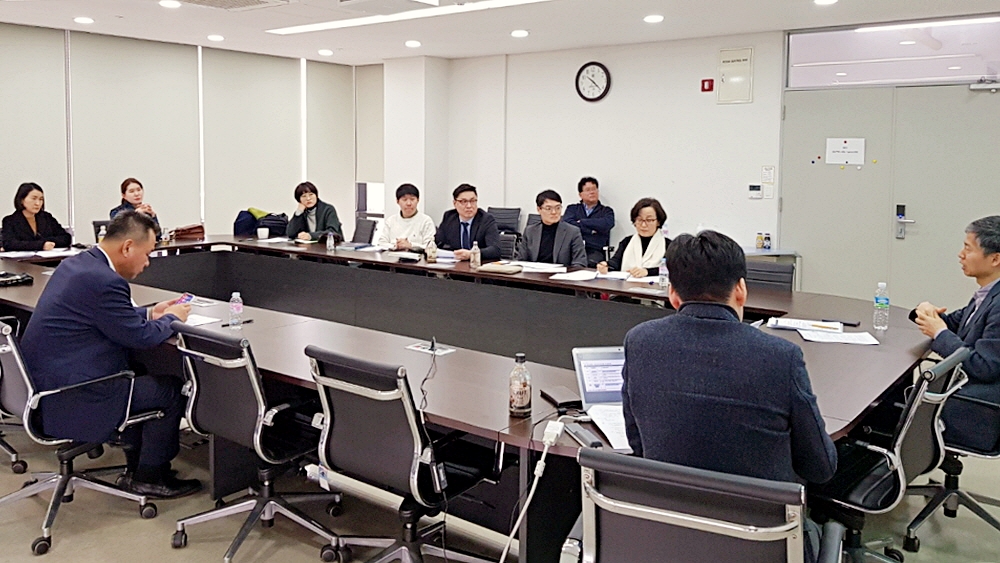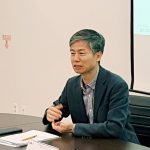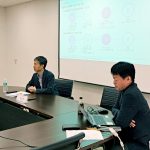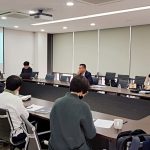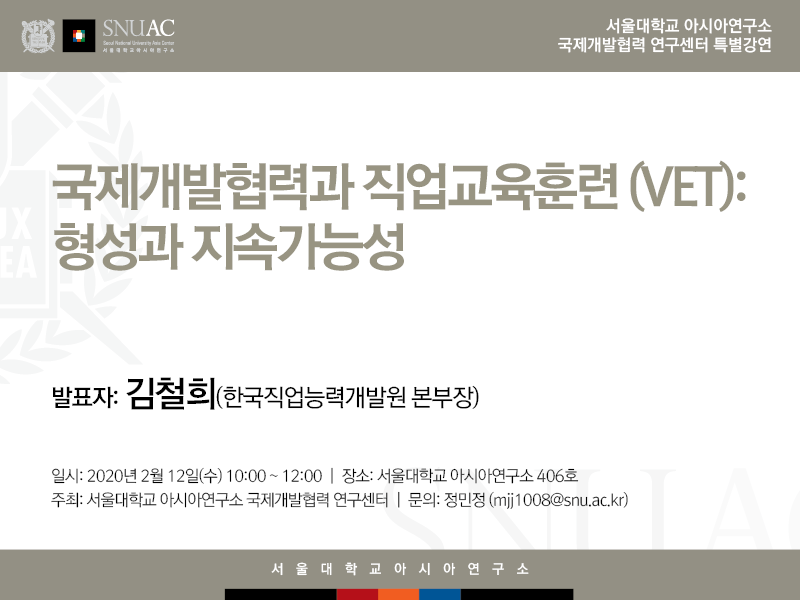
International Development Cooperation and Technical and Vocational Education and Training (VET): Formulation and Sustainability
- Date: February 12th, Wednesday, 2020 10:00-12:00
- Location: Room 406, SNUAC (Bldg. 101)
SNUAC International Development Cooperation Research Center is holding a special lecture with Dr. Chul Hee Kim (Korea Research Institute for Vocational Education & Training) to discuss the formation and sustainability of the center’s SNU Glocal Community Development Framework (establishing and operating vocational school in Lombok, Indonesia) project.
Speaker: Dr. Chul Hee Kim (Korea Research Institute for Vocational Education & Training)
- UNESCO Asia Pacific Regional Bureau (Bangkok Office) Programme Specialist (2014~2016)
- Technical Expert in Government Performance Evaluation Committee in the Office of Prime Minister (2010~2013)
- Technical Expert in the education sector of KOICA (2011~2012)
- TF member for educational restructuring in the Council for Future and Vision (2011~2012)
- Evaluator for local job creation project for the Ministry of Employment and Labor (2007~2011)
- Member in the textbook publishing committee in KOICA ODA Education Center (2011)
- Evaluator for GHC project annual consulting for the Ministry of Education (2012)
- Evaluator for WEST program for the Ministry of Education (2012)
- Affiliated Professor at the Dept. of Business Administration, Myongji University (2004~2006)
- Lecturer at Kyonggi University Graduate School (2007)
On February 12th, SNUAC International Development Cooperation Research Center hosted a special lecture with Dr. Chul Hee Kim (Korea Research Institute for Vocational Education & Training) to discuss the formation and sustainability of the center’s SNU Glocal Community Development Framework (establishing and operating vocational school in Lombok, Indonesia) project.
Dr. Kim evaluated the project to have the potentials for various achievements since it consists of an affiliation of a university (SNU), a research institute (SNUAC) and a corporation (Samick Musical Instruments Co., Ltd.). Especially, since Samick Technical School has a precedent of accomplishing a vocational training model for teenagers from vulnerable social groups in Cileungsi, Indonesia, he analyzed that it fulfills the expectations for effectiveness. Also, he explained that Korea has a lot of experience with technical and vocational education and training (TVET) so that short-term achievements, as well as ripple effects, can be made in international development cooperations in TVET, making it an ultimate area for development cooperation.
Yet he suggested some revisions to the realization possibility of the project, which is an important part of cooperation between private and public sectors. He advised that considering the project objectives and procedures, a more abundant and clearer analysis should be presented on case studies, project contents, issues, responses and measures of improvement so that the project can be pursued as a private-public cooperation project. With thorough awareness and preparations for the period, procedure and method of the project, a system with higher possibility of realization may be constructed. Also, as additional research is needed on Indonesia’s situations, requests, accomplishments of past aids and policy directions, faithful preliminary research will decide the success of the project.
After the lecture, audience members carried out an in-depth discussion on the sustainability of the project and the role of SNUAC based on the general understanding of TVET.


